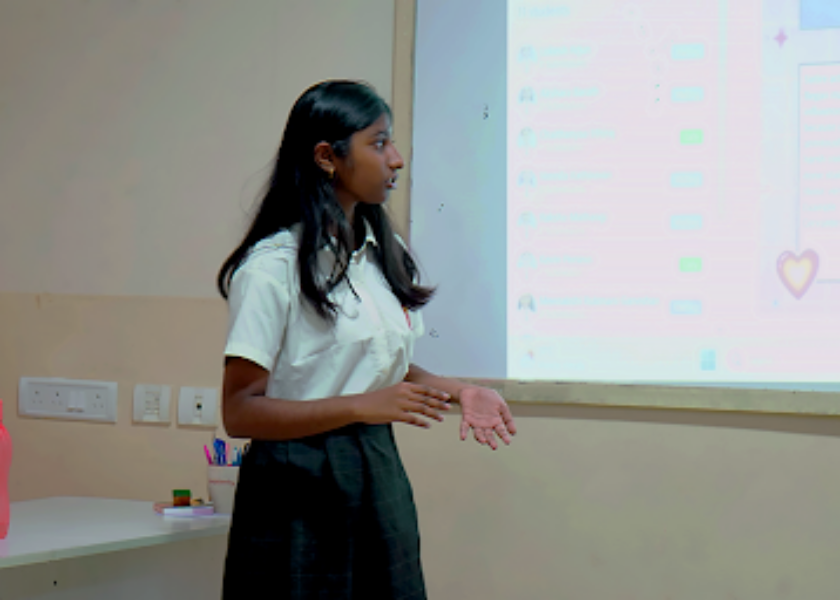In the globalized world of education, choosing the right curriculum for your child is a pivotal decision. Chennai, known for its diverse educational landscape, offers parents the choice between two prominent international curricula: the International Baccalaureate (IB) and the International General Certificate of Secondary Education (IGCSE). Let’s delve into the nuances of these curricula and explore how they shape the educational experience in Chennai.
Understanding IB and IGCSE:
The International Baccalaureate (IB) and the International General Certificate of Secondary Education (IGCSE) are both renowned for their rigorous and holistic approach to education. The IB curriculum is designed to foster critical thinking, creativity, and international-mindedness. On the other hand, the IGCSE curriculum places emphasis on a broad and balanced education that equips students with practical skills and knowledge.
Benefits and Considerations:
IB Advantages:
Holistic Development: The IB curriculum nurtures well-rounded individuals through its emphasis on academic rigor, skill development, community service, and global-mindedness.
Inquiry-Based Learning: IB encourages students to question, research, and think critically, fostering a deeper understanding of subjects.
Global Perspective: With its international focus, IB prepares students to be culturally sensitive and open-minded global citizens.
Well-Rounded Assessment: The diverse assessment methods of IB, including oral presentations and independent research, provide a comprehensive evaluation of a student’s abilities.
IGCSE Advantages:
Subject Specialisation: IGCSE enables students to concentrate on subjects they are passionate about from an early age, preparing them for in-depth academic investigation.
Practical Skills: The IGCSE curriculum equips students with practical skills and knowledge that can be applied to real-world situations.
Preparation for Higher Levels: IGCSE sets a solid foundation for further education, such as AS/A levels, Cambridge Pre-University, or even the IB Diploma.
Comparing IB and IGCSE:
Let’s dig in deeper into the comparison of these two prominent international curricula:
| Aspect | IB Board | IGCSE Board |
| Origin and Association | Founded by a consortium of international educators | Forms a part of the renowned Cambridge pathway system |
| Approach to Content | Emphasises skills and critical thinking, utilising a flexible framework and assessment criteria allowing the exploration of diverse reading materials aligned with the curriculum | Requires adherence to prescribed readings for study and assessment |
| Curriculum Design | Emphasizes a structured educational framework tailored to the needs of MYP and DP, with a flexible curriculum approach informed by guidelines and subject frameworks | Adheres to a specific and structured curriculum outlined in accordance with IGCSE guidelines and subject specifications |
| Subject Mastery | Encourages students to achieve mastery in certain subjects | Aims to excel in examinations for higher levels of understanding |
| Learning Focus | Fosters student-centered learning with a combination of external and internal assessments for each subject, ensuring a comprehensive evaluation of learning outcomes | Externally graded certificates hold greater weight than school-assessed qualifications |
| Flexibility in Curriculum | Offers flexibility as a complementary framework | Culminates in a systematic end-of-program examination for international comparison |
| Skill Development | Concentrates on holistic skill development | Driven by syllabus and centered around examinations |
| Adoption in India | Approximately 201 schools in India offer IB curriculum | Over 400 schools in India are offering the IGCSE curriculum |
| Approach to Learning | Encourages concept and context-based, inquiry-driven, interdisciplinary learning with a global perspective | Subject specialisation, practical applications |
| Assessment Methods | Coursework, oral presentations, written examinations, research | Written examinations, coursework (varies), subject-specific evaluation |
| Curriculum Flexibility | Offers a wide range of subjects, encourages exploration through Core elements | Provides subject choices, promotes early specialisation |
Chennai’s Educational Landscape:
Chennai’s education scene is dynamic, with numerous schools offering both IB and IGCSE programs. Parents often consider factors such as teaching methodologies, extracurricular activities and the school’s overall ethos while making this critical decision.
Gateway International School (IB) and Gateway The Complete School:
In the heart of Chennai’s educational ecosystem, Gateway IB Continuum School and Gateway The Complete School stand out as institutions offering the best of both worlds. Gateway IB Continuum School follows the IB curriculum, seamlessly transitioning students from the Primary Years Program (PYP) to the Middle Years Program (MYP) and eventually the Diploma Program (DP). On the other hand, Gateway The Complete School, the best IGCSE school in Chennai offers the IGCSE curriculum, ensuring a holistic and comprehensive education.
Both schools prioritize not only academic excellence but also character development and overall growth. By providing a nurturing environment that encourages critical thinking, creativity, and holistic well-being, Gateway IB Continuum School and Gateway The Complete School, renowned IB schools in Chennai, uphold the values of their respective curricula while preparing students for success in an ever-evolving world.
Conclusion:
The choice between IB and IGCSE is a decision that resonates with a student’s learning style, aspirations, and individual strengths. Chennai’s educational institutions, including Gateway IB Continuum School and Gateway The Complete School offer exceptional platforms for students to excel in their chosen curriculum, providing a solid foundation for future endeavors in an increasingly interconnected world.




